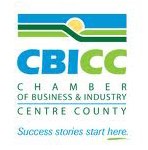This week, Paul Nichols, answers a viewer question about borrowing from his 401k. We’ve all thought about it, now listen to some advice from the “Investor Coach” to figure out […]
Index To Tax Planning Content
Tax planning is by far the most overlooked area of financial planning. Very few investors have ever learned the realities of how tax planning can have a dramatic impact on their net spendable income in retirement. Most Americans are not familiar with simple concepts concerning taxation, like the difference between a marginal and effective tax bracket. The vast majority of retirement accounts that we see, are subject to taxation, another way to put it is most Americans have a permanent tax lien on their largest investment account. Learn the realities of how tax planning could affect to your retirement plan.
The History of Insurance: Ben Nevejans

This week Paul has Ben Nevejans from LifePro on the show. Ben is a life insurance expert. They explain how insurance started, transformed and how it got to be one of the safest places for your money.
Health Care: Representative Glen ‘GT’ Thompson

We have had a number of calls lately regarding the current health care debate. With all of the fear mongering going on, it is difficult to know what is real and what is hype. Since I take it upon myself to “pull back the curtain on the issues that matter to you” we will dive right in to this topic on my radio show this week. Representative Glen ‘GT’ Thompson is my guest this week, and I am going to ask him the tough questions, and get the answers to the questions we all have. If you have any questions about the current health care debate, this is the show to listen to.
U.S. Representative, Glen ‘GT’ Thompson
The following is an excerpt from U.S. Representative Glen “GT” Thompson, who will be featured on this weeks radio show, regarding the current health care debate. As a proponent of pulling back the curtain on the issues that matter to you, I thought it would be prudent to offer some insight to this issue.
Headline in The New York Times: “Public Option Push in Senate Comes With Escape Hatch.” I read that and thought, “Why have the Democrats crafted their health care reform in this manner? Why would they need an ‘escape hatch’?”
Roth IRA

This week Paul has Kevin Nuber on. They discuss the pros and cons to a Roth IRA conversion.
Retirement: Retirement Planning Today
Coming up in October I will once again be teaching one of my Retirement Planning Today® courses sponsored by South Hills School of Business & Technology. These courses are taught at over 200 colleges and universities throughout the country. I am teaching two sessions, one on Thursdays October 1 and 8 and the other on Tuesdays October 6 and 13. Each session runs from 6:30 pm to 9:30 pm and included in the $49 tuition is a 230 page work book.
Why Financial Education is Important
As an investor coach, I feel education and proper planning are vital components to a happy retirement. Due to recent tax law changes, an uncertain future for Social Security and the shift toward employee-directed retirement plans, the need for sound financial strategies has never been greater. In straightforward
Tax Cuts and the Rich
A common misconception is that tax cuts are for the rich. This is nothing more than political “get-me-re-elected” talk. It is obvious that the rich make up such a small portion of the tax paying population, the politicians view this as a small group of voters. There are more poor, middle class, and upper middle class voters than there are rich voters. So don’t be surprised when a politician favors the area where there are more voters. The tactic is as old as dirt. Divide and conquer, blame someone else for your problems, so you will vote for them. These are not poor or middle class people running for office. Remember, these people will spend millions to get elected to a position that pays a couple of hundred thousand dollars a year. Makes sense, right?
Tax Planning: Misguided Wisdom
Don’t Limit 401K Deductions to the Amount Matched…I found the following sage advice in a local newspaper: Even though the company matches only part of the 401k contribution, it is to your benefit to put the most away in your 401k plan as you can, since 401k plans are an excellent way to save for retirement. The author of the article went on to profess that often many investors contribute only up to the company match within their 401k plan, and do not take advantage of their 401k plan if the company does not match, and he states that this is a mistake. He finalizes this train of thought by stating that with a 401k plan, an investor receives a double tax benefit.
How Can You Make Debt Work for You?

Paul inteviews Brian Allen from Capital Mortgage. They talke about arbitrage, prefered debt vs. no preferred debt and how to take money out of your IRA with out a tax concequence.
Major Transfers lack Wealth Management
In your everyday existence, you are confronted with transfers of your wealth. You continuously, unknowingly, give or transfer money away. Not only do you give this money away but you also lose the ability to earn money on that money once it is transferred. This compounds your loss. To eliminate or reduce these transfers, you must first learn to recognize them and then understand how directly or indirectly they cost you money. You may have to confront conventional financial wisdom. Remember, the ones giving you these financial programs tend to profit from them. Always ask, who would profit from these transfers? Here is a list of transfers that are worth investigating further:
-Taxes
-Qualified Retirement Plans
-Financial Planning
-Disability
-Credit Cards
-Tax Refunds
Millionaire by 30

Paul Interviewes best selling author Emron Andrew. They discuss practices found in his book “Millionaire by 30.” Don’t let the name fool you. Everyone can use this information.
Wealth Management – Why Pay Off Your Mortgage?
From the desk of Paul Nichols: President of Financial Abundance Inc.
Most homeowners have the misconception that the wisest method to accelerate the payoff of their home is to simply pay extra principle payments on their mortgages. Other homeowners are lured into thinking that bi-weekly mortgage payment plans are the answer. Still other homeowners utilize a 15-year mortgage rather than a 30-year mortgage amortization. In actuality, none of these methods usually prove to be the wisest method to accomplish a “free and clear” home.
Estate Attorney

Paul interviews Alan Agulis. They discuss how an estate attorney can help protect you and your heirs.
Roth 401(k)
From the desk of Paul Nichols: President of Financial Abundance Inc.
The Roth 401(k) entered the retirement community in 2006. This investing innovation was created by a provision of the Economic Growth and Tax Relief Reconciliation Act of 2001. Modeled after the Roth IRA, the Roth 401(k) gives investors the opportunity to fund their accounts with after-tax money. Investors will receive no tax deduction on contributions to a Roth 401(k), but they will owe no taxes on proceeds. Participants in 403(b) plans are also eligible to participate in a Roth plan.
IRA: Congress Feels Your Pain
Recognizing the bear market’s severe impact, lawmakers approved an economic relief measure before they adjourned earlier this month that can be a big deal for most older retirement investors.
The legislation suspends for 2009 the rules that force older individual retirement account holders and their beneficiaries to take minimum annual withdrawals, or what’s referred to as RMDs (Required Minimum Distributions).
The legislation, called the Worker, Retiree, and Employer Recovery Act of 2008, applies to RMDs for IRAs, 401(k)s, 403(b)s, and similar plans. It only applies to withdrawals in 2009, so 2008 needs to be taken, and they will be back in force (barring any changes) for 2010.













 Clarity Coaching Tips
Clarity Coaching Tips Common Sense Videos
Common Sense Videos It’s Your Money
It’s Your Money
